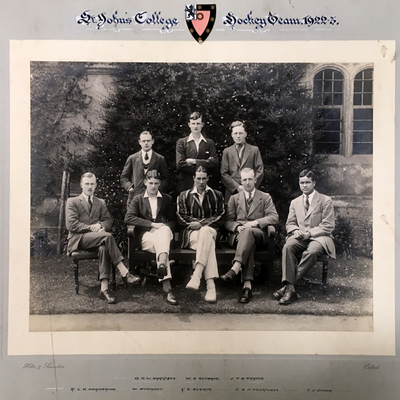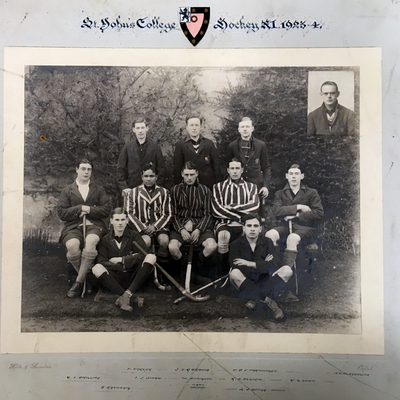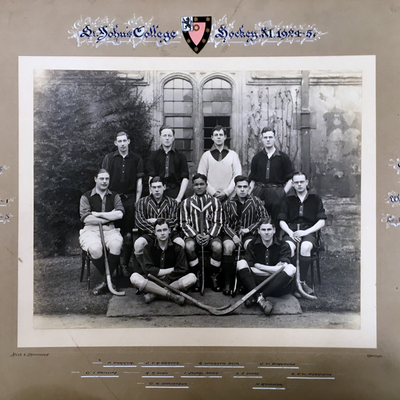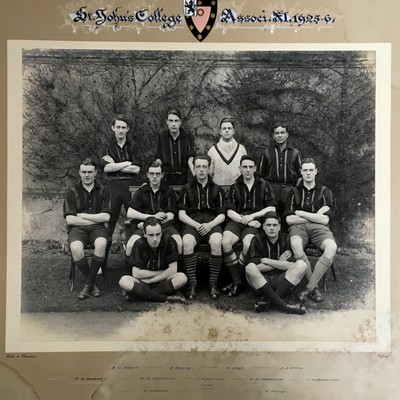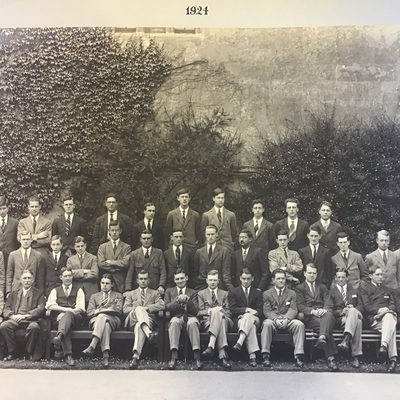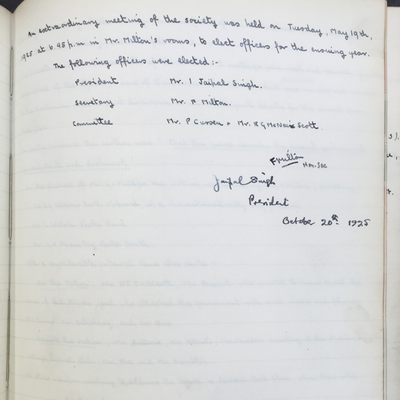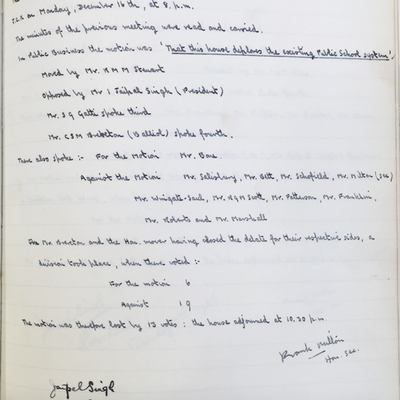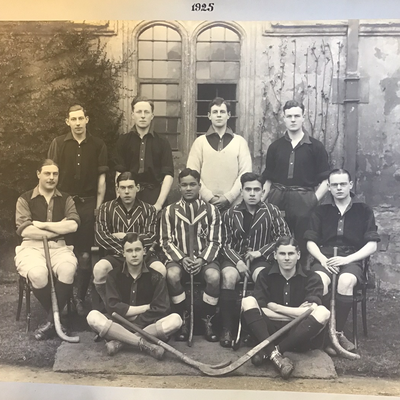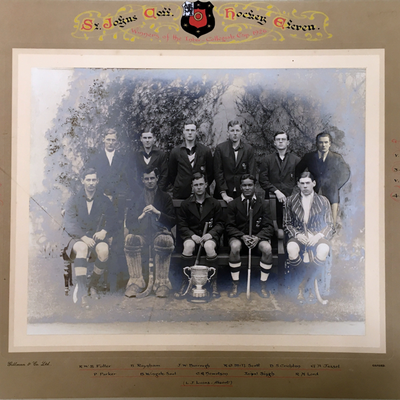Ishwardass Jaipal Singh, 1903-1970, (SJC: 1922-6, 1927-1929)
He was a man who “crossed” - as the sociologist Nandini Singh puts it - “several worlds”, geographically and culturally, physically and intellectually. Jaipal Singh was an exceptional student, a teacher and colonial administrator, an outstanding sportsman, a brilliant speaker, a determined politician, and a seminal figure in the history of Adivasi (tribal and indigenous people’s) rights in India.[i] Born in 1903, in a small Adivasi (tribal) village in Chotanagpur area, in what was then Bihar province in Eastern India into a family of the Munda tribe, Jaipal Singh was educated locally in the village school run by missionaries, and at St. Paul’s School, Ranchi, also run by the Anglican SPG (Society for the Propagation of the Gospel, which had strong links with Oxford). He was sent to Oxford by the SPG, where he made friends amongst those involved in Christian Fellowship.
Jaipal Singh matriculated in 1922. He read PPE, taking his BA in 1926, MA 1929. He was Secretary and then President of the Debating Society, in the College’s Football XI, and in the College and the University Hockey Team, contributing to the latter’s win against Cambridge in 1924 – being awarded a Hockey blue. Singh captained the Indian Hockey team for the 1928 Olympic games in Amsterdam, leading them in a series of successful league matches in the run up to the finals, which the Indian team won, although Singh left before the finals after a dispute with the English manager of the team.
In 1927-28 Singh was an Indian Civil Service Probationer but resigned, taking instead a covenanted mercantile assistantship with the Royal Dutch-Shell Group in Calcutta from 1928-32. Singh went on to work for the British Colonial Service, teaching at Prince of Wales College in Achimota, now in Ghana, from 1933, and was made Minister for Colonialism in the Princely state of Bikaner in 1938. In 1939 Jaipal Singh became the President of the All India Adivasi Mahasabha (All India Association of Indigenous Peoples). He was a founder of the movement towards a separate state – Jharkhand – in whose construction the confirmation of Adivasi rights and territories was to be an enshrining principle. Singh used his considerable rhetorical skills, perhaps discovered and honed through his participation in debates at Oxford, to blistering effect as the Representative for “aboriginal tribes of Chota Nagpur” at the Constituent Assembly of India.
Singh was critical of the Assembly’s approach to Adivasi concerns, and unconvinced of the commitment to ensuring that Adivasi rights were protected and reparations made for their treatment under a succession of rulers and governments in the past. He pointed out that “the dispossession of Adivasis had not begun with the British and would not cease when they left”.[ii] In the year 2000, after decades of struggle, the state of Jharkhand came into being but failed to prioritise or protect the rights of indigenous peoples. The present political formation merely reiterates caste and class hierarchies, and state-sponsored patterns of oppression and dispossession.
In December 1946, when the Constituent Assembly began a debate on a new Constitution for India, Jaipal Singh rose to speak for Adivasis. [iii] You can listen to an All India Radio recording of Jaipal Singh speaking at the Constituent Assembly here: https://www.youtube.com/watch?v=94SWPob8JdM
[i] Nandini Sunder https://www.southasia.ox.ac.uk/event/the-return-of-the-adibasi-the-multiple-worlds-of-jaipal-singh-munda.
[ii] Parmar, Pooja. "Undoing Historical Wrongs: Law and Indigeneity in India."Osgoode Hall LawJournal49.3(2012) : 491-525.http://digitalcommons.osgoode.yorku.ca/ohlj/vol49/iss3/3, 505.
[iii] See also https://www.ndtv.com/people/a-jungli-in-the-constituent-assembly-jaipal-singh-munda-1652949 for a transcription of parts of the speech.
